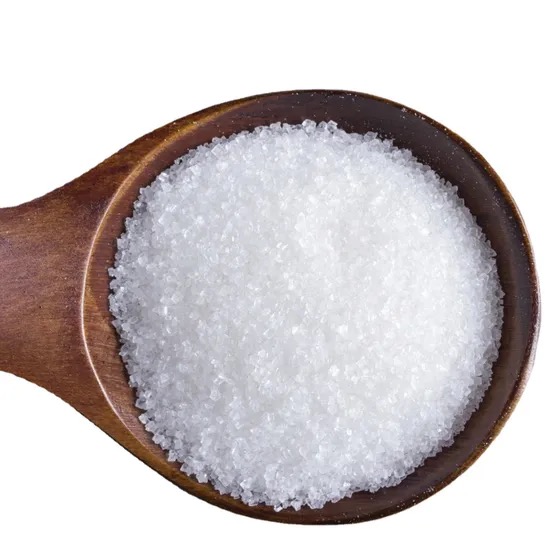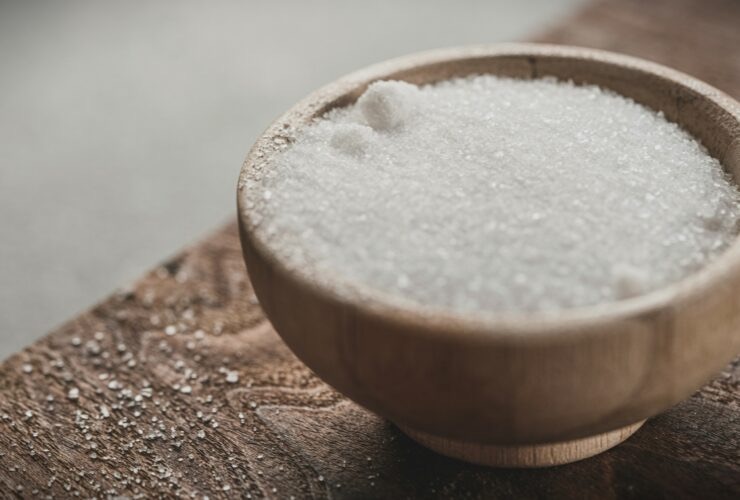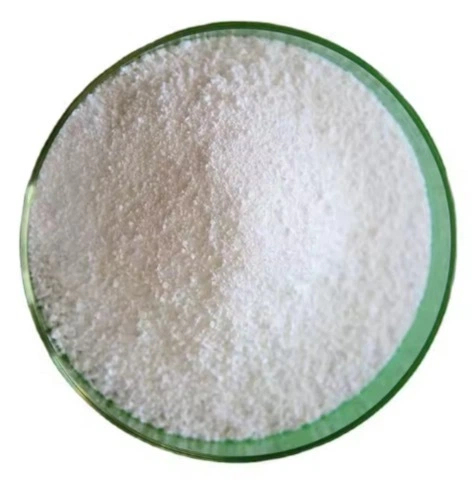







Content Menu
>> Lower Calorie Content for Weight Management
>> Reduced Impact on Blood Sugar Levels
>> Functional and Sensory Properties in Food
>> Potential Prebiotic Effects
● Potential Side Effects and Risks
>> Gastrointestinal Discomfort
● Industrial and Healthcare Applications
● Frequently Asked Questions (FAQ)
>> 1. Is maltitol safe for people with diabetes?
>> 2. Can maltitol cause digestive problems?
>> 3. How many calories does maltitol have compared to sugar?
>> 4. Does maltitol promote tooth decay?
>> 5. What are the recommended safe consumption levels of maltitol?
Maltitol is a sugar alcohol widely used as a sugar substitute in many food products, including sugar-free candies, baked goods, and dietetic formulations. It offers sweetness with fewer calories and a lower glycemic index than regular sucrose (table sugar), positioning it as a beneficial alternative for individuals reducing sugar intake or monitoring blood glucose. However, maltitol's effects on health depend on consumption levels and individual tolerance, making it important to understand both its benefits and potential drawbacks.

Maltitol is a sugar alcohol (polyol) derived by hydrogenating maltose, itself obtained from starch sources such as corn, wheat, or potatoes. It is about 70-90% as sweet as sucrose and contains roughly half the calories, at approximately 2.4 calories per gram versus 4 calories per gram in sugar. Maltitol's chemical structure, combining a glucose molecule and a sorbitol molecule, allows it to provide sweetness and bulking properties similar to sugar, which is why it is favored in many reduced-sugar or sugar-free products.
As a nutritive sweetener, maltitol provides energy unlike non-nutritive artificial sweeteners, which means it can contribute calories if consumed in large amounts. Its metabolism includes partial absorption in the small intestine, with unabsorbed portions fermented by gut microbiota in the colon.
Maltitol's calorie content is about half that of sugar, making it an attractive option for people trying to manage their weight. Because it imparts a sweet flavor similar to sugar without the full caloric load, maltitol allows consumers to enjoy sweet foods with fewer calories. This caloric reduction can help support weight loss or maintenance when incorporated thoughtfully into the diet.
Maltitol has a glycemic index of about 35, compared to 60-70 for sucrose. This means it raises blood sugar more slowly and to a lesser extent, which is beneficial for those with diabetes or insulin resistance looking to moderate post-meal glucose spikes. Studies demonstrate maltitol's ability to inhibit carbohydrate-digesting enzymes, reducing glucose absorption in the intestine and leading to better blood sugar control after consumption.
Unlike sugar, maltitol is not fermented by oral bacteria that cause tooth decay and dental caries. Products sweetened with maltitol, such as chewing gum, do not promote cavities and can even reduce the bacteria contributing to dental plaque buildup. One controlled study found that chewing gum containing maltitol significantly reduced gingivitis in people with poor oral hygiene.
Maltitol maintains the texture, moisture retention, and bulk similar to sugar, which are important qualities in confectionery and baked goods. It can be used in a near 1:1 ratio to sugar in recipes, making it versatile for food manufacturers. Maltitol also lacks the unpleasant aftertaste found in some other sugar substitutes, which helps consumer acceptance.
Some scientific research suggests maltitol may have mild prebiotic properties, promoting beneficial gut bacteria such as bifidobacteria and lactobacilli. These bacteria contribute to gut health and production of short-chain fatty acids, which have various systemic health benefits. However, more research is needed to confirm the extent and implications of maltitol's prebiotic effects in humans.
Because maltitol is only partially absorbed in the small intestine, the remainder passes into the large intestine, where it is fermented by gut microbes. This fermentation can cause gastrointestinal symptoms such as bloating, gas, flatulence, and abdominal discomfort. Consuming high amounts of maltitol (above 30 grams per day for most adults) increases the likelihood of these symptoms. Children may tolerate lower amounts (around 15 grams) before symptoms arise.
At higher doses, maltitol can have a laxative effect, leading to diarrhea. Regulatory agencies require warning labels on products containing significant amounts of maltitol (over 10% by weight or above about 50 grams per serving) to caution consumers about potential laxative effects. Sensitive individuals may experience gastrointestinal distress at lower doses.
Though maltitol has a lower glycemic index than sugar, it is not glycemia-neutral. Excessive consumption can still elevate blood glucose and insulin levels, impacting people managing diabetes. It is advisable for diabetic patients to monitor portion sizes of maltitol-containing foods within their broader carbohydrate intake.
Unlike zero-calorie artificial sweeteners, maltitol contributes energy, so overconsumption may contribute to caloric excess and weight gain if not balanced with overall diet.
While maltitol is generally safe and hypoallergenic, rare cases of allergic reactions have been reported, though these are uncommon.

Maltitol is widely used by food manufacturers as a sugar alternative due to its functional qualities and consumer appeal. Its role extends beyond food to healthcare products including oral care formulations (toothpaste, mouthwash) and pharmaceutical tablets, where it acts as a sweetening agent and bulking material.
Companies specializing in natural sweeteners, functional polyols, and dietary fibers develop maltitol blends and OEM/ODM services tailored for international food and healthcare manufacturers seeking healthier, lower-calorie products. Maltitol's stability, taste, and technical properties make it a valuable ingredient in the healthy product landscape.
Maltitol is a beneficial sugar substitute that offers reduced calories, a lower glycemic response, and dental health advantages compared to regular sugar, making it useful for weight management and diabetes control. It also performs well in food production, maintaining texture and sweetness close to sugar. However, maltitol consumption should be moderate to avoid gastrointestinal side effects like bloating and laxative effects. Overall, maltitol can be part of a healthy dietary strategy when consumed sensibly, supporting reduced sugar intake without compromising taste or product quality.

Yes, maltitol has a lower glycemic index than sugar and produces a smaller rise in blood glucose levels. However, those with diabetes should still consume it in controlled amounts as it can affect blood sugar.[1][2][3]
High intake of maltitol can cause gastrointestinal issues such as bloating, gas, and diarrhea due to fermentation in the colon. Consuming more than 30 grams per day often leads to these symptoms in adults.[3][4][9]
Maltitol contains about 2.4 calories per gram, roughly half the calories of sugar, which has about 4 calories per gram. This makes maltitol a lower-calorie alternative.[5][1]
No, maltitol does not cause tooth decay like sugar. It is not fermented by bacteria in the mouth, making it a tooth-friendly sweetener often used in sugar-free gum and dental products.[2][1]
Most adults can consume up to 30-40 grams of maltitol daily without significant digestive discomfort. Children's tolerance is lower, around 15 grams per day. Products containing higher amounts must include laxative warnings.[4][3]
[1](https://www.dietvsdisease.org/what-is-maltitol-is-it-safe/)
[2](https://www.signos.com/blog/what-is-maltitol)
[3](https://pmc.ncbi.nlm.nih.gov/articles/PMC9261844/)
[4](https://pmc.ncbi.nlm.nih.gov/articles/PMC7400077/)
[5](https://www.healthline.com/health/food-nutrition/is-maltitol-safe)
[6](https://www.health.harvard.edu/blog/how-healthy-is-sugar-alcohol-202312183002)
[7](https://health.clevelandclinic.org/what-to-know-about-sugar-alcohols)
[8](https://www.ynhh.org/services/nutrition/sugar-alcohol)
[9](https://www.medicinenet.com/is_maltitol_better_worse_than_sugar_side_effects/article.htm)
